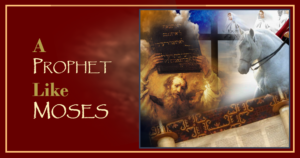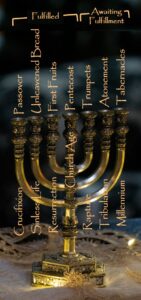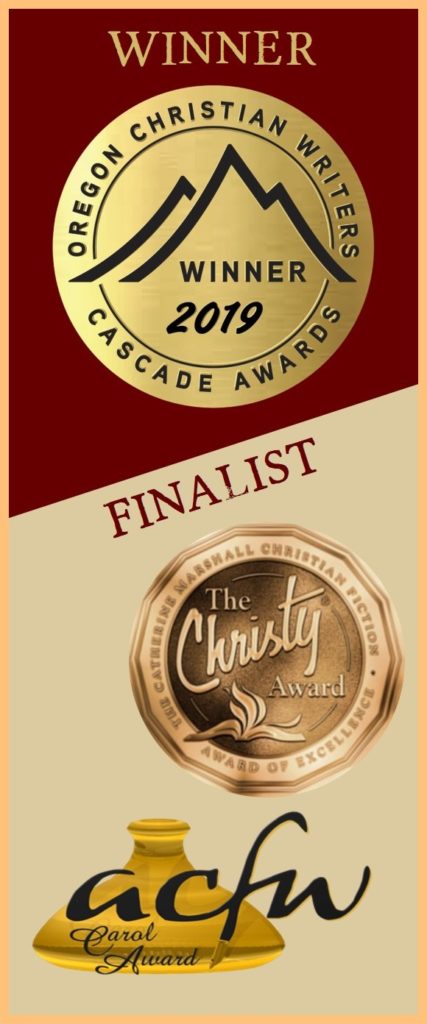A Prophet Like Moses
 Key among Moses’ prophecies is this: “The Lord Your God will raise up for you… a prophet like me” (Deut 18:15).
Key among Moses’ prophecies is this: “The Lord Your God will raise up for you… a prophet like me” (Deut 18:15).
Fourteen astonishing ways Jesus fulfilled this ages-old Messianic prophecy.
All the Feasts!
It occurs to me that, as we’ve moved through this year, I’ve now posted on the whole cycle of Feasts! As well as on the “super feast,” Shabbat. I guess that’s an accomplishment worth taking a minute to commemorate and to celebrate! For me and–more importantly–for all of you who’ve stuck with me through this journey! Thank you so much. The opportunity to share my discoveries with you has made this SO worthwhile.
As a recap, here’s the list of posts specifically related to the Feasts God appointed through Moses.
Shabbat
The Lord’s Appointed Feasts (מוֹעֲדִים, moadim)
The Lord’s Feasts both commemorate key events in Israel’s journey and miraculously prefigure the Lord’s redemptive plan through Messiah. This knowledge has been largely lost to today’s church, but it’s fascinating.
- A New Calendar for God’s New People–And Why It Was Crucial
- Christ Our Passover Is Sacrificed
- Fine Linen, White and Clean (Shavuot / Pentecost)
- When God’s People Count the Days (Feast of Trumpets)
- When the King Claims His Throne (Yom Kippur / Day of Atonement)
- When God’s Son Shakes Up the Feast (Sukkot / Feast of Booths)
- When God’s People Linger (Shemini Atzeret / Eighth Day of Assembly)
Prophetic Scroll
The seven Feasts to the Lord–representation from The Prophetic Scroll. The first four feasts were fulfilled, in sequence, in precise detail perfectly on their appointed dates on the Hebrew calendar at our Lord’s first coming. The remaining three feasts will be fulfilled at His second coming.
Menorah image by Luis Gonzalez on Unsplash
As the annual cycle of Feasts wraps up, so does another important cycle in Jewish life. Observant Jews read through the Torah (the first five books of the Bible, authored by Moses) every year, following a standardized weekly schedule of “Torah portions.” On the day after the Feast of Booth concludes, there’s a holiday called Simchat Torah, Celebration of Torah. This one’s a traditional celebration rather than one of the Lord’s Feasts given through Moses. It acknowledges the day the annual Torah reading cycle ends for the previous year, with Deuteronomy 34, and begins again (on the same day) with Genesis 1:1.
So this post is overdue, since that holiday passed a couple of weeks ago. Sorry about that… But sometimes the Lord leads me on a path doesn’t line up with my agenda!
How I Came to This
I’ve been on a bit of a personal odyssey with the Torah for the past three years. We made a family trip to Israel three years ago—which was an amazing experience. I heartily recommend it! After we came home, a few verses started to strike me in a new way.
“Therefore the Law has become our tutor to lead us to Christ, so that we may be justified by faith” (Gal 3:24).
“These things… were written for our instruction…” (1 Cor 10:11).
I realized that in my thirty-odd years as a Christian, I’d spent relatively little time in the early books of the Bible. If I’m ignorant of the Law, which in Jewish idiom refers specifically to the first five books of the Bible (Torah), then how could “these things” instruct me?
Didn’t I want to be instructed?
So I started a program of regular Torah reading. I found a great website that gives the weekly Torah portions and provides fabulous explanations that demystify it all for Christians. And I learned it’s true that gaining a better grasp of the Jewish roots of my faith (Rom 11:17-24) opens a whole new dimension to my understanding, especially of Messiah.
“You will find the Scriptures enlarge as you enter them; the more you study them the less you will appear to know of them, for they widen out as we approach.”
– C.H. Spurgeon
I’ve gained so much new context on what I read in the New Testament—especially on my journey of learning about the Feasts of the Lord.
Torah Is the Foundation
In Western thought, time progresses in a line. How often has someone shown you a timeline for something? I’m slowly learning to appreciate that, in Hebrew thought, time progresses as a spiral–a succession of broadening cycles. Weekly: six work days followed by a seventh-day rest. Monthly. Annual cycles: Feasts and seasons and the Torah portions. The Shemitah and the Jubilee.
Since time is a spiral, what happens in Torah doesn’t stay in Torah. Torah lays out “shadows” and “copies” (Heb 8:5) of things that we’ll rejoice to see in all their fullness when we join our Redeemer in heaven.
Prophecies often have multiple fulfillments which provide an ever-greater realization of the same spiritual truth. “Out of Egypt” God calls His people (Matt 2:15 quoting Hos 11:1)—first Moses, then the nation of Israel (Num 24:8), then Yeshua, then (symbolically) Yeshua’s followers. Moses releases his followers from physical bondage to Egypt; Yeshua releases His followers from spiritual bondage to sin.
The Torah gives us the stories of many great heroes of the faith: Adam and Eve, Enoch, Noah, Abraham, Sarah, Isaac, Rebecca, Jacob, Leah, Rachel, Joseph, Aaron, Joshua… the list could go on. But among them, Moses himself looms large. The prophet ( נָבִיא, nāvî, “spokesperson”) through whom the Lord instituted the Feasts and pretty much everything else we’ve been studying here: Moses.
Since that time no prophet has risen in Israel like Moses, whom the Lord knew face to face, for all the signs and wonders which the Lord sent him to perform in the land of Egypt against Pharaoh, all his servants, and all his land, and for all the mighty power and for all the great terror which Moses performed in the sight of all Israel. (Deut 34:10)
I’d like to focus today on one of Moses’ most important statements:
The Lord your God will raise up for you a prophet like me from among you, from your countrymen, you shall listen to him. (Deut 18:15)
Yeshua: The Prophet Like Moses
Should the Jewish nation have recognized Yeshua as “the Prophet Like Moses”?
According to the Deut 34, Moses was unique among the prophets in the Hebrew scriptures because
- He knew the Lord face to face;
- He performed unparalleled signs and wonders
- He beheld God’s form (Num 12:7-8)
Like Moses, Yeshua performed great signs and wonders. (John 6:14, 7:31, 9:32)
Like Moses, Yeshua knows the Lord “face to face” and beholds His form (John 1:1, Luke 9:34, Heb 1:3,13)
John J. Parsons on Hebrew4Christians.com provides a wonderful list of thirty parallels between Moses and Yeshua. I’ll cherry-pick a dozen here:
- There were 400 years of silence before the Lord sent Moses to deliver the Israelites from bondage to Pharoah. There were 400 years of silence before the Lord sent Yeshua to deliver the world from bondage to sin and death.
- Both were born under foreign rule.
- Both were threatened as infants by wicked kings.
- Both spent their early years in Egypt, miraculously protected.
- Both were initially rejected by the Jewish nation
- Both were initially accepted by Gentiles (Moses in Midian, Yeshua by the world)
- Both fasted for forty days in the wilderness.
- Both fed the people bread from heaven.
- Both were mediators of a covenant of blood.
- Moses instituted the Passover by means of the blood of a lamb. Yeshua became our Passover, the Lamb of God.
- Moses defeated the Amalekites via his upraised arms. Yeshua defeated sin and death by His upraised arms on the cross.
- Moses offered a baptism providing safe passage through the Red Sea (1 Cor 10:2). Yeshua offers our baptism providing safe passage into “newness of life” (Rom 6:4).
These analogies weren’t lost on Yeshua’s followers.
John: “Therefore when the people saw the sign which He had performed, they said, ;This is truly the Prophet who is to come into the world.’ ” (John 6:14)
Peter: “Moses said, ‘The Lord God will raise up for you a prophet like me from your brethren; to Him you shall give heed to everything He says to you. And it will be that every soul that does not heed that prophet shall be utterly destroyed from among the people.’ ” (Acts 3:22-23)
I think a couple of parallels bear special emphasis.
Sacrificial Love
Moses was a type of Yeshua in that both were willing to die for the sins of the people. After the Sin of the Calf, Moses pleaded with the Lord to forgive His people. “But now, if You will, forgive their sin—and if not, please blot me out from Your book which You have written!” (Ex 32:32) Moses’ offer was declined, of course, as only a sinless sacrifice would do. (Heb 9:14)
How, then, was Jesus a prophet “like Moses”? Well, like Moses, He was a Jew, a Leader, a Prophet, a Lawgiver, a Savior, a Teacher, a Priest, a Healer, an Anointed One, a Mediator between God and man—speaking the words of God—and like Moses, He offered Himself to die for the sins of the people.
– John J. Parsons, Hebrew4Christians.com
“If your presence does not go with us, do not lead us up from here.” – Moses, Ex 33:15
“My God, My God, why have You forsaken Me?” – Yeshua, Matt 27:46
This, Too, Shall Pass
And here’s another powerful parallel. Somewhat veiled among Moses’ prophecies was the truth that the covenant he instigated would end.
The Lord your God will raise up for you a prophet like me from among you, from your countrymen, you shall listen to him. (Deut 18:15)
If your outcasts are at the ends of the earth, from there the Lord your God will gather you,… The Lord your God will bring you into the land which your fathers possessed, and you shall possess it…. Moreover the Lord your God will circumcise your heart and the heart of your descendants, to love the Lord your God with all your heart and with all your soul, so that you may live…. And you shall again obey the Lord, and observe all His commandments which I command you today. (Deut 30:4-10)
David and Jeremiah expanded on this idea.
“This is the covenant that I will make with them
After those days,” says the Lord:
“I will put My laws upon their heart,
And on their mind I will write them…
And their sins and their lawless deeds
I will remember no more.” (Heb 10:16-17 quoting Jer 31:33-34)
Sacrifice and offering You have not desired,
But a body You have prepared for Me;…
Then I said, “Behold, I have come…
To do Your will, O God.” (Heb 10:5-7 quoting Psalm 40:6-7)
Yeshua, on the other hand, will rule forever.
His descendants shall endure forever
And his throne as the sun before Me. (Psalm 89:36)In the days of those kings the God of heaven will set up a kingdom which will never be destroyed, and that kingdom will not be left for another people; it will crush and put an end to all these kingdoms, but it will itself endure forever. (Daniel 2:44; see also Daniel 7:14)
He will be great and will be called the Son of the Most High; and the Lord God will give Him the throne of His father David; and He will reign over the house of Jacob forever, and His kingdom will have no end.” (Luke 1:32-33)
Yeshua’s reign will never end. But He foretold (like Moses did) that the “age” (dispensation) He inaugurated at His first coming will.
So just as the tares are gathered up and burned with fire, so shall it be at the end of the age. The Son of Man will send forth His angels, and they will gather out of His kingdom all stumbling blocks, and those who commit lawlessness, and will throw them into the furnace of fire; in that place there will be weeping and gnashing of teeth. (Matt 13:37-42)
Again, the kingdom of heaven is like a dragnet cast into the sea, and gathering fish of every kind; and when it was filled, they drew it up on the beach; and they sat down and gathered the good fish into containers, but the bad they threw away. So it will be at the end of the age; the angels will come forth and take out the wicked from among the righteous, and will throw them into the furnace of fire; in that place there will be weeping and gnashing of teeth. (Matt 13:47-50)
Surely I am with you always, to the very end of the age. (Matthew 28:20).
The two parables make the same point. This “age of grace” will end. And when it does, it will bring
- Separation of the wicked (“stumbling blocks who commit lawlessness”) from the righteous
- Judgment for the wicked (“into the furnace of fire”)
Here is a critical truth to take in. In Jesus’ day, they were looking for Messiah as the Lion of Judah, who would defeat the Romans and give them their kingdom back. Instead, they got the Lamb, the Suffering Servant—and they rejected the perfect Lamb of God.
Today, people are looking for the Lamb. We’ve worked hard to spread the Good News that God is love—and He is! But many people picture Jesus only as the Suffering Servant, the gentle and meek Lamb who preached “judge not.”
I shudder to imagine their dismay when He returns as the Lion—jealous for His righteousness (1 Cor 11:2)—instead.
“And the Lord, whom you seek, will suddenly come to His temple; and the messenger of the covenant, in whom you delight, behold, He is coming,” says the Lord of hosts. “But who can endure the day of His coming? And who can stand when He appears? For He is like a refiner’s fire…” (Mal 3:1-2)
How astonished will this generation be when our Lord returns as the “refiner’s fire,” the Great High Priest, the Warrior King, and the Righteous Judge?
Anyone who has set aside the Law of Moses dies without mercy on the testimony of two or three witnesses. How much severer punishment do you think he will deserve who has trampled under foot the Son of God, and has regarded as unclean the blood of the covenant by which he was sanctified, and has insulted the Spirit of grace? (Heb 10:28-29)
Brothers and sisters, I urge you to ensure your name is written in the Lamb’s Book of Life. BEFORE the “sudden” Day of His Coming, when the final verdict will be rendered.
Behold, now is “the acceptable time,” behold, now is “the day of salvation”… (2 Cor 6:2) Would you rather have the Lamb or the Lion as your Judge?
If you’ve never opened God’s free gift of salvation through Jesus (Rom 3:23, 6:23), please please please be persuaded to do it now! It’s simple. Just tell God from your heart that you admit you’re a sinner that needs a Savior (“For all have sinned and fall short of the glory of God.” Rom 3:23) that you’re done running your own life, and that you’re ready to make Jesus Lord of your life.
If you confess with your mouth Jesus as Lord, and believe in your heart that God has raised Him from the dead, you shall be saved. For with the heart a person believes, resulting in righteousness, and with the mouth he confesses, resulting in salvation. For the Scripture says, “Whoever believes in Him will not be disappointed.” (Rom 10:9-11)
The decision that saves you is that simple!
Simple… But no one said living it out will be easy. Especially now.
A sincere thank you for devoting your time and attention to this twenty-second post in the series on Divine Appointments: Insights from God’s Calendar.
Here are the previous posts, if you’d like to check them out. I’ve bolded and put asterisks on a couple that I think are critical reading right now!
- A New Calendar for God’s New People… And Why It Was Critical
- Christ Our Passover Is Sacrificed
- The Holocaust: The Most Crucial Prophetic Event of Our Day
- Israel’s Birth: Two Truths and a Lie
- Fine Linen, White and Clean (Shavuot/Pentecost)
- The Commandment No One Talks About (Shabbat/Sabbath)
- Commandments Are For Keeps. Or Not? (Shabbat/Sabbath)
- The Fast That Failed (Fast of Tammuz)
- ** When Stars Sing (The Revelation 12 Sign)
- A Tale of Two Temples (The Ninth of Av)
- When the Heavens Declare (The Elul 1 Eclipse)
- Harvey: When Storms Rage
- When Stars Sing (Reprise) (In Defense of the Revelation 12 Sign)
- ** Sleeping, Scoffing or Watching? (Forty Days of Repentance)
- When the Bride Makes Ready (Forty Days of Repentance)
- ** When God’s People Count the Days (Feast of Trumpets and Days of Awe)
- ** When the King Claims His Throne (Yom Kippur / Days of Atonement)
- When God’s Son Shakes Up the Feast (Feast of Booths)
- When God’s People Linger (Shemini Atzerat / Eighth Day of Assembly)
- The Most Embarrassing Thing Ever…
- Dark Deeds Under a Full Moon (Bitter Month of Chesvan)


No Comments